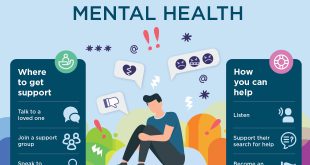Attention-Deficit/Hyperactivity Disorder (ADHD) is a neurodevelopmental condition that affects millions of individuals worldwide.
While ADHD is often recognized for its impact on attention and executive functioning, it can also be classified as a disability for some people, especially when it significantly impairs their daily functioning and quality of life.
In this article, we’ll explore why ADHD can be considered a disability for certain individuals, delve into the relationship between ADHD and mental health, and discuss the importance of understanding and accommodating those affected.
ADHD as a Disability: Understanding the Criteria
ADHD is characterized by persistent patterns of inattention, hyperactivity, and impulsivity that are inconsistent with developmental level and that impair functioning in multiple settings, such as at school, work, or home.
For some individuals, these symptoms can be severe enough to qualify as a disability under various legal and medical definitions. The classification of ADHD as a disability is often determined by its impact on an individual’s ability to perform daily activities and participate fully in life.
The Americans with Disabilities Act (ADA) in the United States, for example, provides protection for individuals with disabilities by requiring reasonable accommodations in the workplace and other areas of public life. Under the ADA, ADHD can be considered a disability if it substantially limits one or more major life activities, such as learning, concentrating, or working.
The Impact of ADHD on Daily Functioning
For many people with ADHD, the symptoms extend beyond occasional lapses in attention or impulsivity. Severe ADHD can disrupt daily functioning in significant ways. Individuals with ADHD often face academic and occupational challenges, struggling with organizing tasks, completing assignments, and meeting deadlines.
This can result in academic underachievement and difficulties in the workplace. The challenges in sustaining attention and managing time effectively can hinder career progression and impact job performance.
Furthermore, ADHD symptoms can affect interpersonal relationships. Impulsivity and difficulty regulating emotions can lead to conflicts with friends, family, and colleagues, straining relationships and potentially leading to social isolation.
In addition to these challenges, managing daily responsibilities such as household chores, financial tasks, and personal care can be overwhelming for individuals with ADHD.
The executive function deficits associated with ADHD can result in chronic disorganization, forgetfulness, and difficulties in maintaining routines. These daily living impairments can further complicate the ability to manage day-to-day activities effectively.
ADHD and Mental Health
The intersection of ADHD and mental health is both complex and significant. Individuals with ADHD are at a higher risk of developing co-occurring mental health conditions, such as anxiety disorders, depression, and substance abuse.
The challenges of managing ADHD symptoms can contribute to emotional distress and exacerbate existing mental health issues. Difficulty with emotional regulation is a common issue for those with ADHD, often leading to mood swings, irritability, and frustration, which in turn can affect self-esteem and overall mental well-being.
The persistent struggle with symptoms may contribute to feelings of inadequacy or failure.
Research indicates that individuals with ADHD are more likely to experience anxiety and depression. The constant pressure to meet societal and self-imposed expectations, combined with the challenges of managing ADHD symptoms, can create a sense of chronic stress and overwhelm.
Some individuals with ADHD may also turn to substances as a way to cope with their symptoms or underlying emotional issues, which can lead to substance abuse problems, further complicating the treatment and management of ADHD.
The Importance of Understanding and Accommodating ADHD
Recognizing ADHD as a disability for some individuals is crucial for providing appropriate support and accommodations. Effective management of ADHD often involves a multi-faceted approach, including medical treatment, behavioral therapy, and educational or workplace accommodations.
Treatment for ADHD typically includes a combination of medication, psychotherapy, and behavioral interventions. Medications such as stimulants and non-stimulants can help manage symptoms, while therapy can provide strategies for coping with challenges and improving executive functioning skills.
In educational and occupational settings, accommodations can make a significant difference. Schools and workplaces can implement modifications such as extended deadlines, flexible work hours, or changes to work or study environments to support individuals with ADHD.
These accommodations help mitigate the impact of ADHD on academic and occupational performance. Addressing the mental health aspects of ADHD is also essential for holistic care. Providing access to counseling or support groups can help individuals manage the emotional and psychological challenges associated with ADHD.
Conclusion
ADHD can be considered a disability for some individuals when it significantly impairs their ability to function in daily life. Understanding the impact of ADHD on daily activities and mental health is crucial for providing appropriate support and accommodations.
By recognizing ADHD as a disability, society can better address the needs of those affected, ensuring they receive the resources and assistance necessary to thrive.
Comprehensive management of ADHD involves a combination of medical treatment, behavioral strategies, and supportive accommodations, all of which play a vital role in enhancing the quality of life for individuals living with this condition.
 Posting Point
Posting Point

